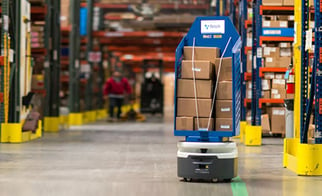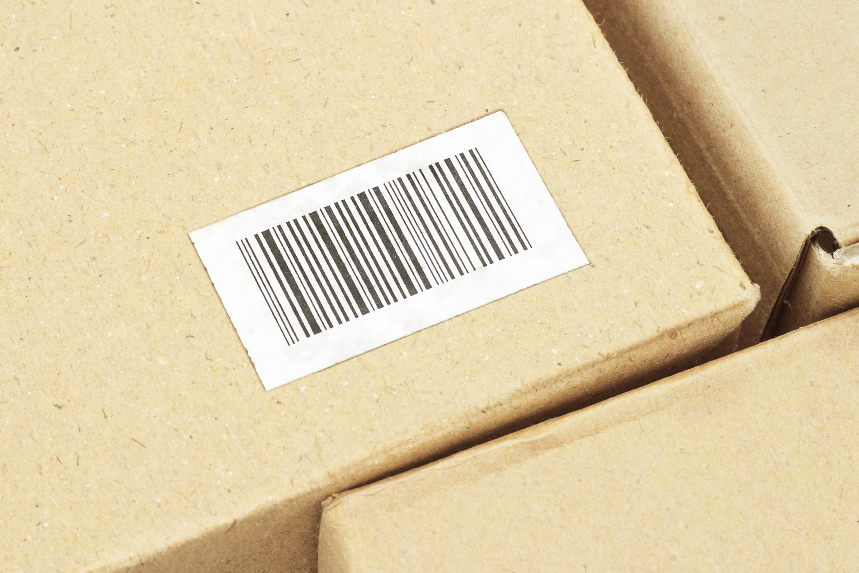“The reports of my death have been greatly exaggerated.”
— Mark Twain, 1897 (also the Barcode, 2024)
Ah, the humble, beloved barcode. Few inventions have transformed modern commerce like those striped bars and spaces that so beautifully symbolize data. The ability to instantly machine-read and capture product-specific information revolutionized inventory and asset management, retail checkouts, and the role of data in the supply chain and the enterprise.
Admittedly, #SupplyChainGeeks are barcode superfans. And for good reason.
This elegantly simple technology has empowered businesses to improve operational efficiency, manage supply chains with precision, and enhance customer experiences through streamlined transactions, detailed product delivery tracking, and improved in-store product availability.
Maybe you’ve heard recent talk of the barcode label’s impending demise. If so, you did the right thing by checking with the experts at Barcoding, Inc. before doing anything rash.
TL; DR: The barcode isn’t expiring, it’s evolving. (We highly recommend reading on.)
So, while there’s certainly no cause for panic, it’s never too early to learn about how and why the barcode is leveling up to its next evolutionary phase. In this article, we’ll explore what all the online chatter’s about, take a closer look at GS1’s Sunrise 2027 initiative, and serve up a little more detailed information about what is and isn’t changing.
Don’t Panic: Quick Explanation of GS1 Sunrise 2027
GS1's Sunrise 2027 initiative kicked off in 2020, marking the start of the retail industry’s migration toward adoption of the data-richer two-dimensional barcode. The transition is driven by the need to connect people, businesses, and systems to more comprehensive product-related information for inventory management, traceability programs, sustainability initiatives, and consumer engagement. The goal is to enable all retailers to read 2D barcodes at points of sale globally by the end of 2027, providing a more dynamic and interconnected retail experience.
GS1’s spearheading of the barcode evolution includes publication of a standard, as well as guidelines to help suppliers and retailers implement GS1 Digital Link, which enables them to leverage Global Trade Item Numbers (GTINs) to share more of the data consumers demand today.
WATCH & LEARN MORE: Barcoding Celebrates GS1 US Executive Solution Partnership
What is a 2D Barcode?
Two-dimensional barcodes have also long been used across manufacturing, warehousing, logistics, and healthcare sectors, too. Because they’re capable of carrying significantly more data than first-generation, linear barcodes, 2D barcodes are significantly enhancing the speed, efficiency, and accuracy of the flow of digital information across the enterprise and the supply chain.
A key feature of this innovation is the integration of GS1 Digital Link, which operates similarly to a URL for websites. This allows the barcodes to encode connections to a wide range of business-to-business and business-to-consumer information. GS1’s goal is to enable all retailers to read 2D barcodes at points of sale globally by the end of 2027.
READ TO LEARN MORE: Two-Dimensional Barcodes: The Gateway to Limitless Product Information
Is a 2D Barcode the Same as a QR Code?
While you may hear the terms used interchangeably, there’s a technical detail that matters. Quick-response codes (i.e., QR codes) are a specific type of 2D barcode that’s easily scanned by a smartphone with a camera. Many consumers got familiar with them during the pandemic, where they helped serve up information as wide-ranging as restaurant menus, vaccine records, and COVID-19 test results.
DEEPER DIVE: How Do 2D Barcodes Compare to QR Codes? Does it Matter?
Also on the Horizon: Digital Product Passports
Digital Product Passports (DPPs), part of the European Union’s initiative supporting a more sustainable economy, are digital product records that provide detailed supply chain information to shine a light on product origins, materials, sustainability, and recycling options. Set for implementation in select industries by 2026, DPPs will use a scannable, digital data carrier (such as a 2D barcode) affixed to products to enhance transparency and traceability, support informed consumer decisions, and improve businesses’ environmental performance.
Never Fear, #SupplyChainGeeks are Here
The barcode’s journey, evolving from its initial use in retail to a wide array of industries, underscores its vital role in the digitization and modernization of global commerce.
And it truly is on the shoulders of this humble supply chain giant that advanced automatic identification and data capture (AIDC) technologies—like the 2D barcode and radio frequency identification (RAIN RFID)—stand today, bringing new levels of supply chain visibility, inventory accuracy, and valuable data to improve everything from operations to customer experience.
Learn more about RFID’s use cases and benefits for retailers and their suppliers in our free how-to guide. Click below to download your copy now.




